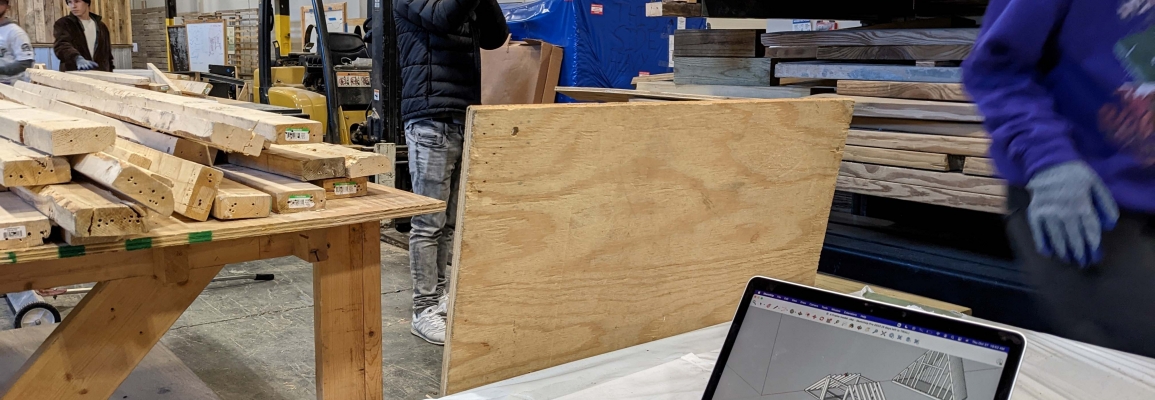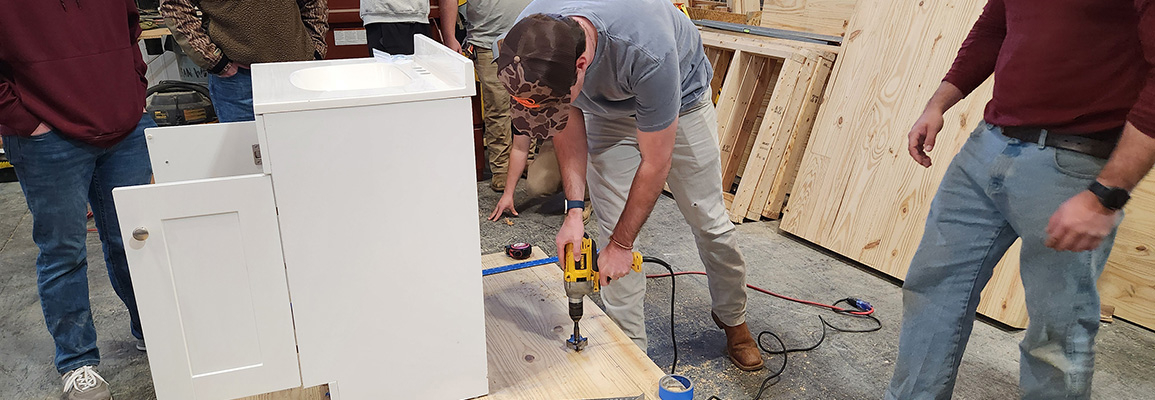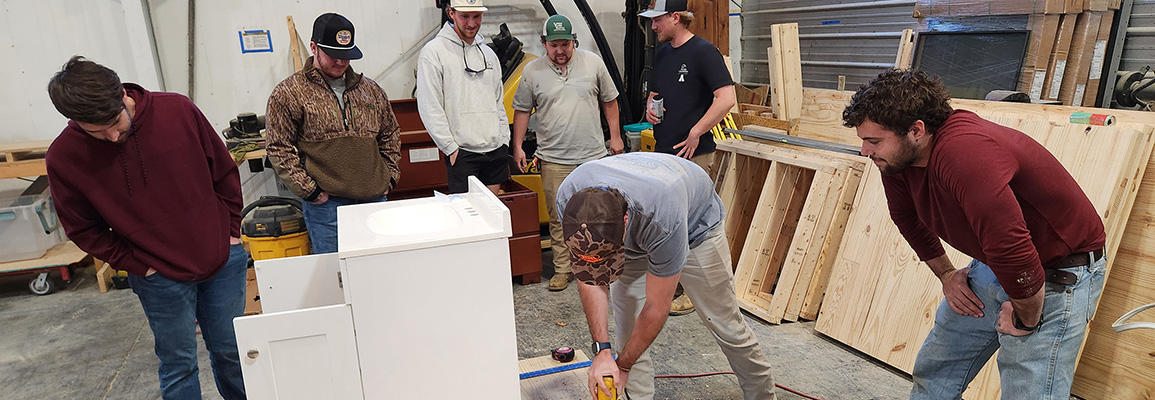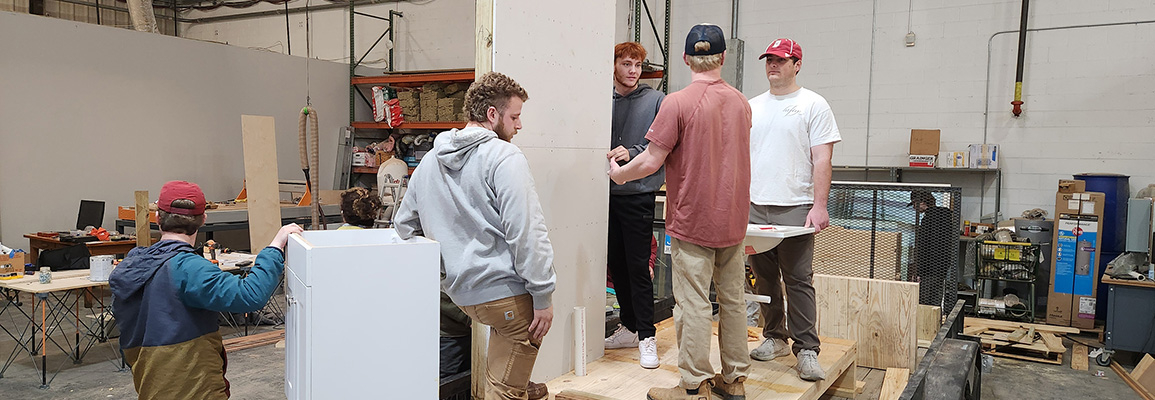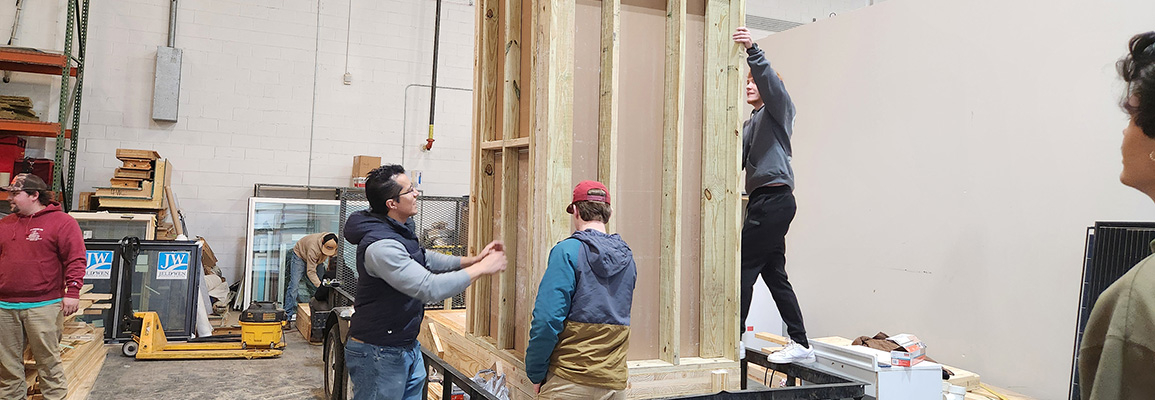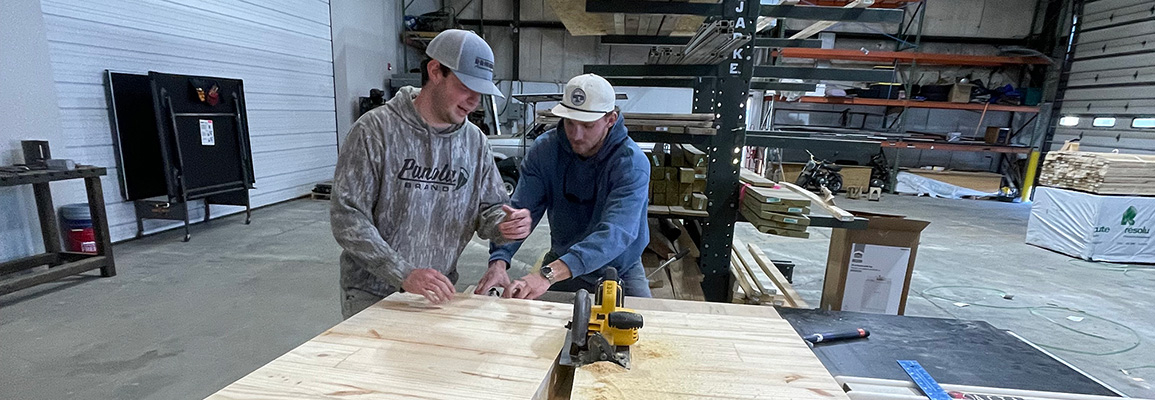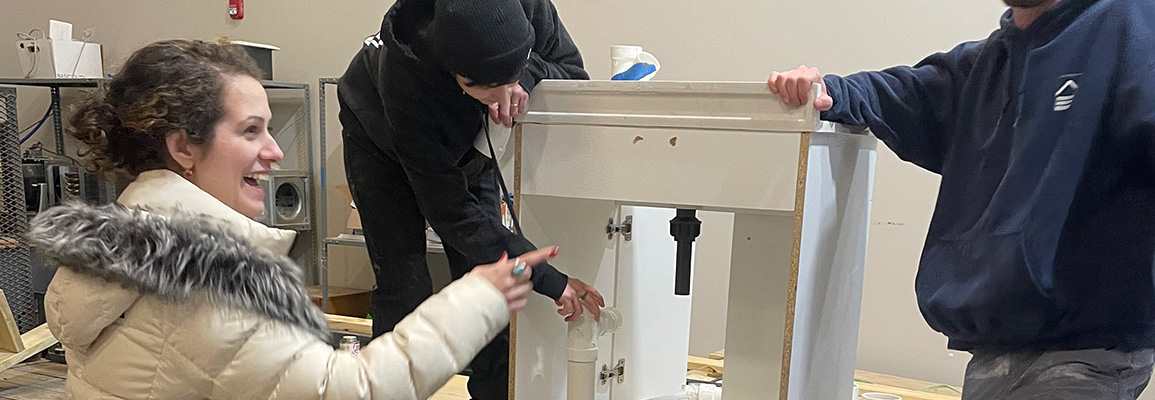The Industrialized Design and Construction (IDC) Lab advances industrialized construction by developing volumetric modular prototypes, evaluating the carbon footprint of prefabricated systems, and supporting workforce development. Using zero-carbon forest products and close industry partnerships, the lab produces cost-effective, scalable solutions for affordable housing through prototyping, validation, and deployment-ready testing.
Workforce development is delivered through undergraduate coursework in the Building Science program, where students gain hands-on experience alongside advanced digital tools such as Building Information Modeling (BIM)—emphasizing mass timber systems—including cross-laminated timber (CLT) and wood-fiber insulation. By integrating advanced materials with efficient prefab delivery, the initiative demonstrates how high-quality housing can be built faster, more attainably, and with significantly reduced environmental impact.
Architecture and engineering for design efficiency, reuse
Offsite construction and prefabrication, digital fabrication, sustainable supply-chain
Circular wood product industry for attainable housing
Sustainable resources: Utilization of underutilized wood, reclaimed lumber, harvesting from wildfire mitigation and private lands
Workforce development, trainings and outreach
People
Faculty:
- Arezou Sadoughi, PhD.
- Mitch Parry, Ph.D.
- Rahman Tashakkori, Ph.D.
- Benjamin Sanchez Andrade, Ph.D.
Graduate students:
- Alex Gray - Alum
- Maclean Frazer - Alum
- Anthony Bird
- Phillip Davis
- Mike Akers
- Michael Ayiku
Undergraduate students:
- Jonas Scott
- Evan Hutchinson
Projects
External Projects
- Optimization of Hybrid Mass Timber Structures for Carbon-Positive Affordable Housing
Generously funded by: Forest Service, US Department of Agriculture
Internal Projects
- Carbon Assessment of a Hybrid Mass Timber Structure for Volumetric Modular Construction Funded by Appalachian Energy Center and University Research Council
- TRADEM - Using Generative Design Techniques for Deconstruction of Modular Prefab Structures. Two GRAM Awards 2021 and 2023
Generously funded by: App State Office of Research, Appalachian Energy Center, Cratis D. Williams School of Graduate Studies
Publications
- Sadoughi, A. et al. 2023. Autonomous Building Design for Manufacturer and Assembly: A review. Journal of Construction Engineering and Management. ASCE [under publication].
- Gray, A. and Sadoughi. A. 2023. Mass Timber: A Review of Typologies and Environmental Benefits. In the Canadian Society of Civil Engineering Annual Conference (pp. 53-63). Springer, Singapore.
- Ahrentzen, S. … and Sadoughi, A. 2022. Shaping a Healthier LIHTC Housing Stock: Examining the Role of States’ Qualified Allocation Plans, Housing Policy Debate, DOI: 10.1080/10511482.2022.2086896
- Sloditskie and Sadoughi, A., 2022. Dematerialization in Housing Industry: Modular Wood-Frame vs Conventional Wood-frame Structure for Multi-family Housing. CRC Conference Proceeding.
- Sadoughi, A., and Raza. M.F., 2020. Low-Income Housing Tax Credit Program: A Solution to the Crisis of Affordable Housing and Modular Construction? RBDCC Conference Proceeding.
- Sadoughi, A. et al. 2020, The Role of Architects in Design-Manufacturing-Build of Building Industry: A Case Study.” CRC Conference Proceeding.
- Sadoughi, A. et al. 2020, Incorporation of Indoor Air Quality in Multi-Family Affordable Housing: A Case Study.” CRC Conference Proceeding.
- Ahrentzen, S. Sadoughi, A. et al, 2018, Creating healthy affordable housing by design, construction and policy: States' innovative strategies in advancing the Low-Income Housing Tax Program (LIHTC). American Public Health Association APHA 2018
- Sadoughi, A., et al, 2018, Exploring the Benefits of Integrated Design to Build Green Affordable Housing: A Review, CRC conference presentation, New Orleans, LA
